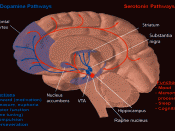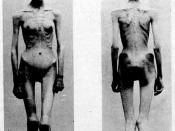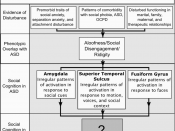Eating disorders develop as outward signs of inner emotional or psychological distress or problems. They become the way that people cope with difficulties in their life. Eating, or not eating, is used to help block out painful feelings. Without appropriate help and treatment, eating problems may persist throughout life. Eating disorders are complex illnesses where both the disturbed eating pattern as well as the psychological aspects need to be treated. Restoring a regular eating pattern plus a balanced diet is needed for balanced nutrition. Helping someone come to terms with the underlying emotional issues enables them to cope with difficulties in a way that is not harmful to them.
Orthorexia is a long-term behavior pattern, not short-term. When one switches to a difficult or restrictive diet, one must pay considerable attention to food and related matters until the new dietary regime becomes habitual. Such a transition period may last for weeks.
After the new diet is a habit, however, attention to food should then decrease to a very low level. Paying attention to food for a few weeks during a dietary transition is not orthorexia; constantly obsessing on food over the long run is. In order for orthorexia to be a disorder, all that is required is for it to have a significant, negative impact on an individual's life. A person does not have to think of food 100% of the time to be orthorexic. (Even those suffering from severe anorexia nervosa, for example, think of many things besides food.) Adherence to strict religious food disciplines is also not orthorexia. Religions are based on love (at least in theory), so religious food disciplines are (in theory) also based on love, therefore, are not pathological (orthorexia is a pathological fixation on food). In contrast, the motivations for this particular disorder promoted...


